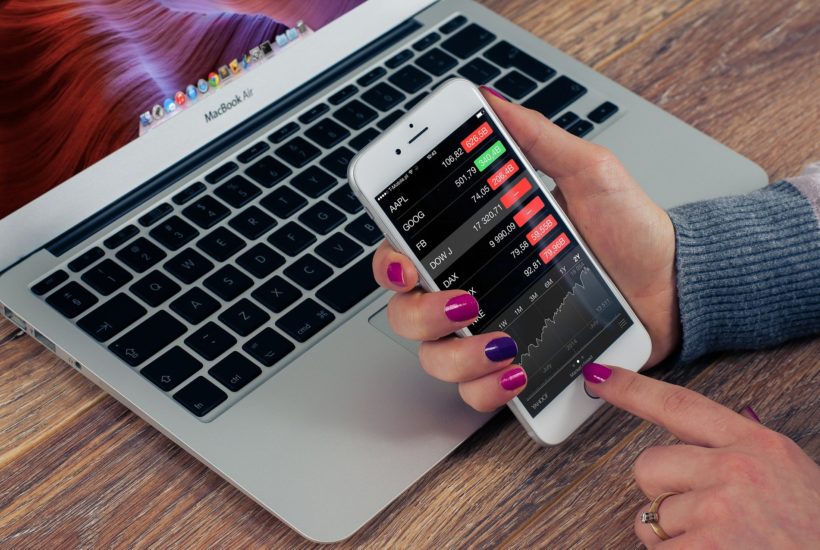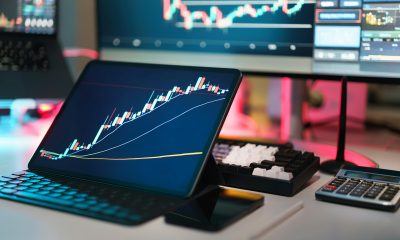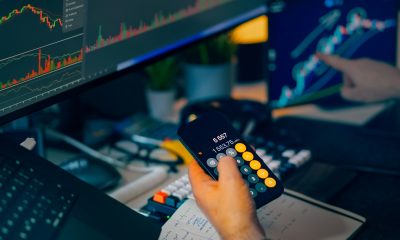Business
The companies taking the brunt on Europe’s stock markets
The coronavirus outbreak has deeply affected the world’s financial markets. On the European stock markets, few stocks are capable of withstanding the onslaught. In the FTSE100 the proportion of companies experiencing rises is much higher because of the lower impact on the British stock market. Tourism companies are, along with banks and automobiles, the companies that have had the worst time.

The coronavirus has become a real hurricane that wipes out everything. It has not only tested the health systems around the world, but also the resilience of the markets. On the European stock markets, few stocks are capable of withstanding the onslaught and only companies in sectors such as logistics, textiles, pharmaceuticals, and distribution manage to scratch a small rise in value. On the other hand, airlines, banks and automobile companies take the brunt.
If you want to find out everything happening on the world’s financial market, download our companion app, Born2Invest. Read the latest business news and stay on top of the market.
Only two companies in the Ibex 35 managed to salvage the stock market crashes
In the Ibex 35, only two companies managed to salvage the stock market crashes: the pharmaceutical company Grifols and the manufacturer of artificial packaging for meat products, Viscofan. The former has benefited from the safety net of the pharmaceutical companies which, although they have also suffered on the stock market, have performed considerably better than the other sectors. In the last month, Grifols leads the Ibex 35 with a rise of over 2%.
In the Continuous Market, Dia is at the forefront of the increases with a 150% growth in value in the last month, boosted by the increases from distribution, one of the few sectors that are taking advantage of the economic slowdown and the confinement in Spain.
An overview of the European stock markets
In the rest of Europe, the best values also correspond to a heterogeneous group of sectors. In the Eurostoxx50, only ASM Lithography and Deutsche Post escaped the falls of the last month and recorded increases of around 2.6%. Only Hermès (+0.32%) narrowly escaped on the Paris trading floor and Deutsche Post (+2.4%) on the Frankfurt trading floor.
In the FTSE100 the proportion of companies experiencing rises is much higher because of the lower impact on the British stock market. In London, nine companies were up in the last month, led by the distribution group Ocado (+21%) and the pharmaceutical company Hikma (+17%).
Companies in the tourism sector take the brunt
Since January, tourism companies have been suffering the consequences of the uncertainty about the economic impact of the health crisis on the stock market. Tourism is one of the sectors most affected by the economic downturn.
On the side of the Ibex 35, since the crisis was a reality in Spain, at the end of February, IAG is left with 63%, and Melia falls 42%, while in London Easyjet falls another 57%. Airbus does the same on the Parisian trading floor with a decline of 55%.
Tourism companies are, along with banks and automobiles, the companies that have had the worst time on the European stock markets in the last month, in which, however, some value has been recovered. In the Eurostoxx50, Airbus (-40%) leads the losses in the last thirty days, followed by the electric Engie (-37%), but banks and car companies also have their place among the most punished.
Safran technology falls 35%, the French entities Société Générale and BNP Paribas are left with 32% and 30% respectively. They are followed by the banks ING, Santander, and Intesa San Paolo, with falls close to 30%. Volkswagen, Daimler, and BME fell a little less, between 15% and 20% in the last month.
__
(Featured image by FirmBee via Pixabay)
DISCLAIMER: This article was written by a third party contributor and does not reflect the opinion of Born2Invest, its management, staff or its associates. Please review our disclaimer for more information.
This article may include forward-looking statements. These forward-looking statements generally are identified by the words “believe,” “project,” “estimate,” “become,” “plan,” “will,” and similar expressions. These forward-looking statements involve known and unknown risks as well as uncertainties, including those discussed in the following cautionary statements and elsewhere in this article and on this site. Although the Company may believe that its expectations are based on reasonable assumptions, the actual results that the Company may achieve may differ materially from any forward-looking statements, which reflect the opinions of the management of the Company only as of the date hereof. Additionally, please make sure to read these important disclosures.
First published in El Independiente, a third-party contributor translated and adapted the article from the original. In case of discrepancy, the original will prevail.
Although we made reasonable efforts to provide accurate translations, some parts may be incorrect. Born2Invest assumes no responsibility for errors, omissions or ambiguities in the translations provided on this website. Any person or entity relying on translated content does so at their own risk. Born2Invest is not responsible for losses caused by such reliance on the accuracy or reliability of translated information. If you wish to report an error or inaccuracy in the translation, we encourage you to contact us.

-

 Impact Investing2 weeks ago
Impact Investing2 weeks agoEnfinity Launches First Solar Plant in Italy with Microsoft
-

 Markets7 days ago
Markets7 days agoSilver Dips Sharply, While Gold Gains Amid Mixed Stock Market
-

 Crowdfunding2 weeks ago
Crowdfunding2 weeks agoEvenFi Launches Run-Off Service to Protect Investors as Crowdfunding Platforms Exit
-

 Africa4 days ago
Africa4 days agoTunisia Holds Interest Rate as Inflation Eases, Debate Grows

























